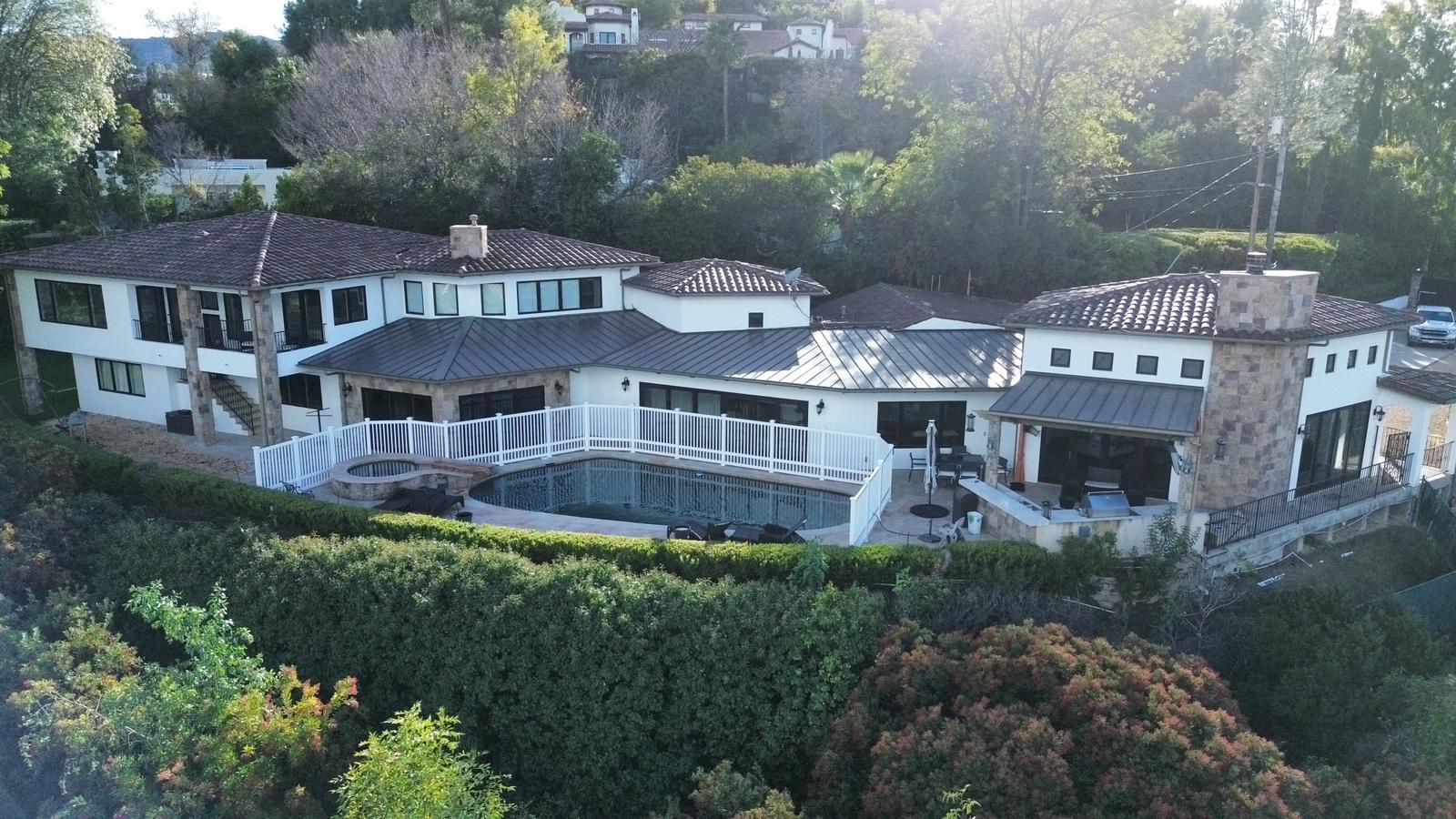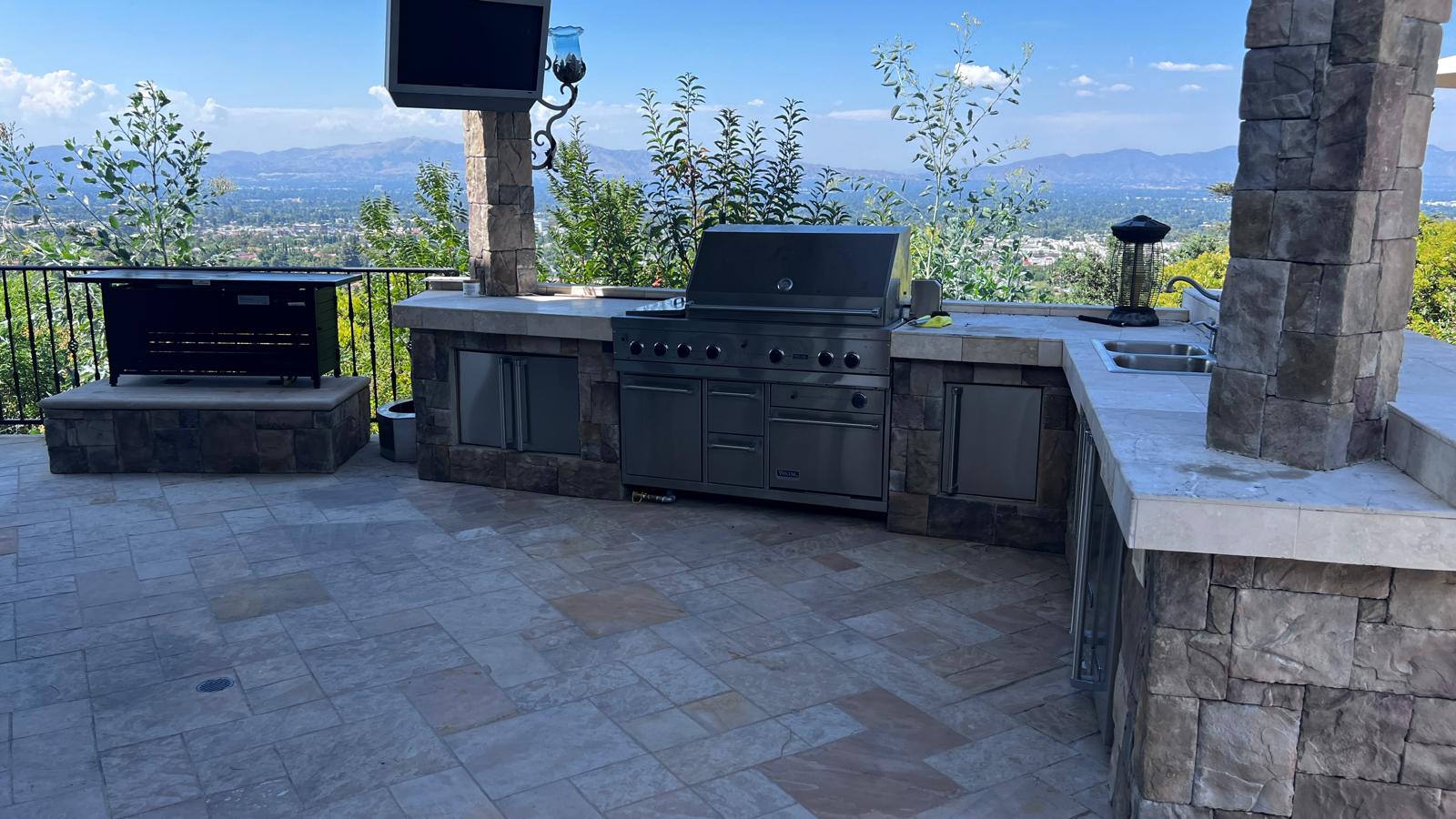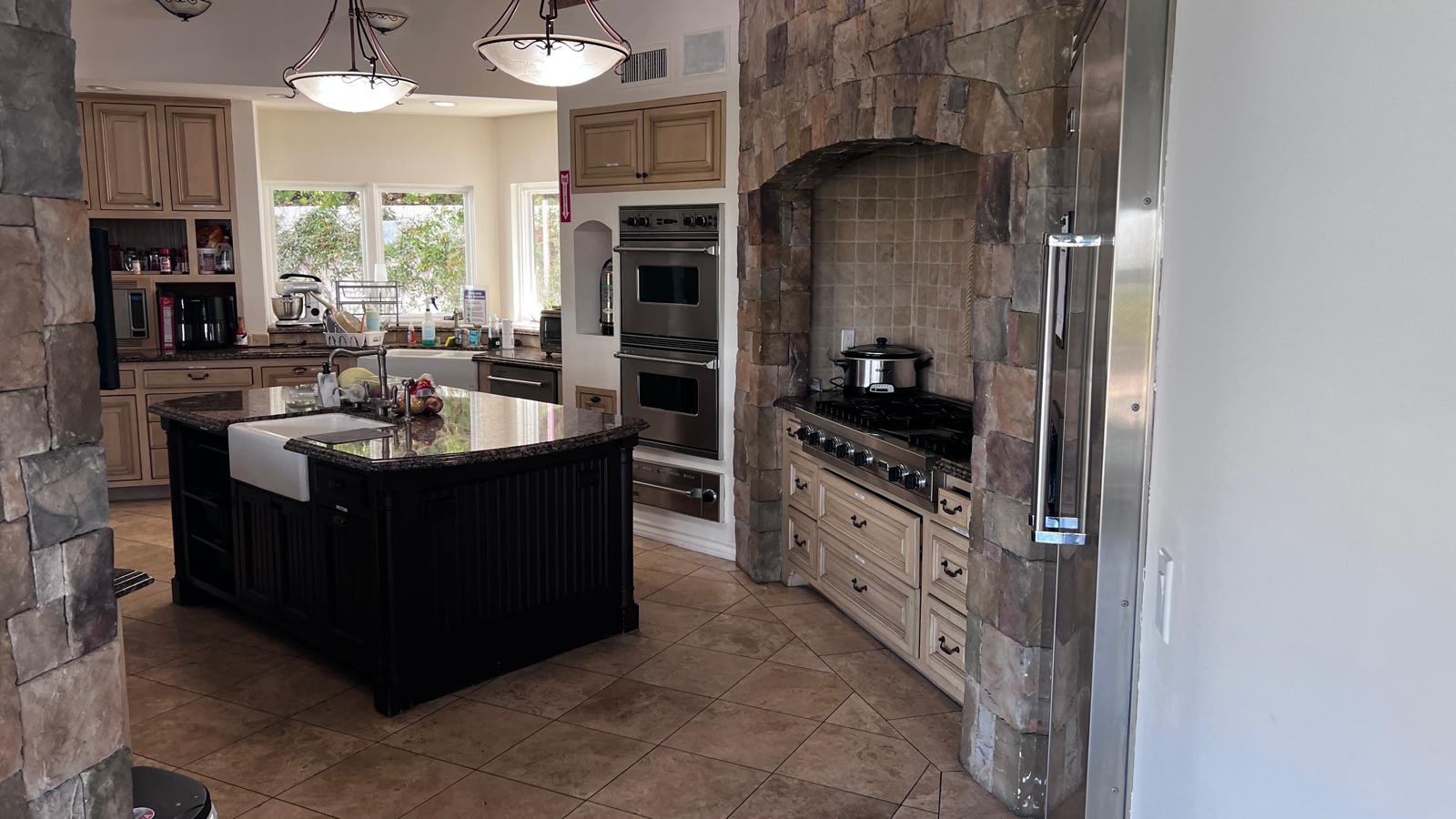Recovery from addiction and co-occurring mental health disorders rarely happens overnight. For individuals struggling with severe substance use disorders, multiple failed attempts at sobriety, or complex mental health conditions, long term residential treatment offers the comprehensive care and extended time necessary to build lasting recovery foundations. At Grand View Villas Recovery Center, we understand that true healing requires more than quick fixes—it demands a commitment to long-term transformation that addresses every aspect of a person’s physical, emotional, and psychological well-being.
Understanding Long Term Residential Treatment
Long term residential treatment represents a specialized approach to addiction and mental health care that extends far beyond traditional 30-day programs. While standard residential programs provide intensive care for brief periods, extended care addiction treatment recognizes that sustainable recovery often requires months of dedicated focus, skill development, and therapeutic intervention. This approach acknowledges the complex nature of addiction as a chronic condition requiring comprehensive, sustained treatment rather than quick interventions.
The philosophy behind long term rehab centers on the understanding that addiction fundamentally alters brain chemistry and neural pathways. These changes don’t reverse in weeks or even months—they require extended periods of sobriety, therapeutic intervention, and skill-building to create new, healthier patterns of thinking and behavior. Research consistently demonstrates that individuals who engage in longer treatment programs show significantly higher rates of sustained sobriety and improved quality of life outcomes.
At Grand View Villas Recovery Center, our long term residential treatment programs are designed with this understanding at their core. We recognize that each individual’s journey toward recovery is unique, requiring personalized attention, flexible treatment timelines, and comprehensive support systems that extend well beyond initial detoxification and stabilization phases.
The Critical Need for Extended Treatment
Traditional short-term treatment programs, while valuable, often fall short of providing the depth of care necessary for individuals with complex addiction histories or co-occurring mental health conditions. Many people entering treatment have experienced multiple relapses, carry trauma histories, struggle with severe mental health symptoms, or face significant life challenges that require extended attention and healing.
Extended stay treatment addresses these complexities by providing sufficient time for individuals to work through deep-seated issues, develop robust coping mechanisms, and practice new skills in a supportive environment before transitioning back to independent living. This approach significantly reduces the risk of relapse and increases the likelihood of sustained recovery success.
The therapeutic process itself requires time to unfold naturally. Trust-building between clients and therapists, processing traumatic experiences, learning healthy relationship skills, and developing emotional regulation capabilities cannot be rushed. Long term mental health facilities provide the luxury of time—allowing individuals to progress at their own pace while maintaining the structure and support necessary for growth.
Comprehensive Treatment Approach at Grand View Villas
Medical and Clinical Excellence
Our residential rehabilitation centers maintain the highest standards of medical and clinical care throughout the entire treatment continuum. Beginning with medically supervised detoxification, our board-certified physicians and addiction medicine specialists ensure safe, comfortable withdrawal management while addressing any underlying health complications.
The clinical team includes licensed therapists specializing in addiction counseling, trauma therapy, cognitive-behavioral interventions, and evidence-based treatment modalities. Each client receives individualized assessment and treatment planning, with regular progress reviews and program adjustments based on evolving needs and treatment responses.
Psychiatric care remains available throughout the program, with psychiatrists providing medication management, mental health evaluations, and specialized treatment for co-occurring disorders. This integrated approach ensures that both addiction and mental health concerns receive appropriate attention and treatment.
Therapeutic Programming
Our behavioral health residential programs incorporate multiple therapeutic modalities designed to address the various aspects of addiction and mental health recovery. Individual therapy sessions provide personalized attention to specific issues, trauma histories, and individual goals, while group therapy offers peer support, shared learning experiences, and opportunities to practice interpersonal skills.
Family therapy components recognize that addiction affects entire family systems, not just individuals. These sessions work to repair damaged relationships, improve communication patterns, establish healthy boundaries, and create supportive home environments that promote continued recovery success.
Specialized therapeutic approaches include trauma-informed care for individuals with histories of physical, emotional, or sexual abuse; cognitive-behavioral therapy for changing destructive thought patterns; dialectical behavior therapy for emotional regulation; and experiential therapies including art therapy, music therapy, and adventure-based counseling.
Holistic Wellness Integration
Recovery encompasses more than addressing addiction symptoms—it involves healing the whole person. Our holistic approach integrates complementary therapies that support physical, emotional, and spiritual wellness. Yoga and meditation programs help develop mindfulness skills and stress management capabilities while promoting physical flexibility and strength.
Nutritional counseling addresses the physical damage often caused by substance abuse, teaching healthy eating habits and meal planning skills essential for maintaining physical health in recovery. Exercise programs, both structured and recreational, help restore physical fitness, improve mood through natural endorphin production, and provide healthy outlets for stress and emotions.
Creative and expressive therapies offer alternative means of processing emotions and experiences that may be difficult to express through traditional talk therapy. These approaches often unlock insights and healing opportunities that complement conventional therapeutic interventions.
Specialized Programs and Populations
Dual Diagnosis Treatment
Many individuals seeking long term residential treatment struggle with co-occurring mental health disorders alongside addiction. Depression, anxiety, bipolar disorder, post-traumatic stress disorder, and personality disorders commonly occur with substance use disorders, requiring specialized dual diagnosis treatment approaches.
Our integrated treatment model addresses both conditions simultaneously rather than treating them as separate issues. This approach recognizes the interconnected nature of mental health and addiction, understanding that sustainable recovery requires addressing both conditions comprehensively.
Psychiatric services include comprehensive evaluations, medication management, and specialized therapy approaches designed for dual diagnosis clients. The treatment team collaborates closely to ensure that interventions for mental health symptoms complement addiction treatment goals rather than working at cross-purposes.
Executive and Professional Programs
Professionals, executives, and individuals with demanding careers often face unique challenges in seeking addiction treatment. Our executive programs provide discrete, high-quality treatment while accommodating professional responsibilities and maintaining confidentiality.
These specialized tracks include flexible scheduling for essential business communications, private accommodations, and treatment approaches that address the specific stressors and triggers common among high-achieving professionals. Executive programs maintain the same clinical rigor as standard programming while providing additional amenities and flexibility.
Young Adult Specialization
Young adults aged 18-25 face distinct challenges in addiction recovery, including brain development considerations, educational and career transitions, and age-specific social and psychological factors. Our young adult programs provide peer groups of similar ages while addressing developmental needs specific to this population.
Programming includes life skills development, educational support, career planning, and transition services that help young adults establish healthy foundations for independent adult living in recovery.
Life in Long Term Residential Treatment
Daily Structure and Programming
Residential treatment provides structured daily schedules that help individuals develop healthy routines while engaging in comprehensive therapeutic programming. Days typically begin with morning meditation or reflection time, followed by nutritious breakfast and medication administration as needed.
Morning programming often includes individual therapy sessions, where clients work one-on-one with primary therapists to address personal issues, process experiences, and develop individualized coping strategies. Group therapy sessions provide opportunities to learn from peers, practice interpersonal skills, and receive support from others facing similar challenges.
Educational programming covers topics essential for recovery success, including relapse prevention strategies, stress management techniques, healthy relationship skills, financial management, and life skills development. These sessions provide practical knowledge and tools that clients will need for successful independent living.
Afternoon activities may include recreational therapy, fitness programs, creative arts sessions, or volunteer opportunities that help build self-esteem and connection to community. Evening programming often focuses on reflection, planning, and integration of daily learning experiences.
Therapeutic Community Environment
The residential environment itself serves as a therapeutic tool, creating a community where healthy relationships, mutual support, and positive peer influence promote recovery growth. Clients learn to navigate interpersonal relationships without substances, practice conflict resolution skills, and develop authentic connections with others.
Community meetings provide forums for addressing house issues, celebrating achievements, and maintaining the therapeutic milieu. These gatherings teach democratic participation, leadership skills, and community responsibility while reinforcing treatment goals and expectations.
Peer mentorship programs pair newer clients with those who have been in treatment longer, creating opportunities for mutual support and learning. These relationships often continue after treatment completion, providing ongoing connection and accountability.
Privacy and Comfort
Grand View Villas Recovery Center provides comfortable, home-like accommodations that support healing and recovery. Private and semi-private rooms offer personal space for reflection and rest, while common areas encourage community interaction and social skill development.
The physical environment is designed to feel welcoming rather than institutional, with comfortable furnishings, natural lighting, and outdoor spaces that promote peace and reflection. Amenities include fitness facilities, recreational areas, and spaces for quiet contemplation or small group activities.
Evidence-Based Treatment Modalities
Cognitive-Behavioral Interventions
Cognitive-behavioral therapy forms the foundation of many addiction treatment approaches, helping individuals identify and change destructive thought patterns that lead to substance use behaviors. Long term residential treatment provides extensive time to practice these skills in various situations and circumstances.
CBT components include identifying triggers and high-risk situations, developing healthy coping strategies, challenging negative thought patterns, and building problem-solving skills. The residential environment provides numerous opportunities to practice these skills in real-life situations while maintaining therapeutic support.
Motivational Enhancement Strategies
Motivation for change fluctuates throughout the recovery process, making motivational enhancement an essential component of long term treatment. These approaches help individuals identify personal values and goals that support recovery while exploring ambivalence about change.
Motivational interviewing techniques help clients develop intrinsic motivation for recovery rather than relying solely on external pressure or consequences. This approach builds lasting commitment to change that extends beyond treatment completion.
Trauma-Informed Care
Many individuals with addiction histories have experienced trauma that contributes to substance use patterns. Trauma-informed care approaches recognize the prevalence and impact of trauma while providing safe, supportive environments for trauma processing and healing.
Evidence-based trauma therapies, including EMDR (Eye Movement Desensitization and Reprocessing) and trauma-focused cognitive-behavioral therapy, help individuals process traumatic experiences without being overwhelmed or retraumatized.
Relapse Prevention Planning
Comprehensive relapse prevention planning begins early in treatment and continues throughout the entire program. Clients learn to identify personal relapse warning signs, develop detailed prevention strategies, and create comprehensive aftercare plans that support continued recovery.
Relapse prevention education covers the stages of relapse, common triggers and high-risk situations, healthy coping strategies, and emergency planning for crisis situations. Role-playing exercises and scenario planning help clients practice using these skills before encountering real-world challenges.
Family Involvement and Support
Family Education and Therapy
Addiction affects entire family systems, often creating patterns of codependency, enabling, communication problems, and trust issues that require professional attention. Family therapy components help heal these damaged dynamics while building healthier relationship patterns.
Educational programming helps family members understand addiction as a disease, learn about recovery processes, and develop skills for supporting their loved one’s recovery without enabling destructive behaviors.
Multi-family group sessions provide opportunities for families to learn from each other’s experiences while building supportive networks that extend beyond treatment completion.
Visitation and Communication Policies
Structured visitation schedules allow family contact while maintaining therapeutic focus and program structure. Initial treatment phases may include limited contact to allow clients to focus on early recovery work without external distractions or pressures.
As treatment progresses, family contact increases with supervised visits, family therapy sessions, and gradually increased communication privileges. This progressive approach helps rebuild trust and healthy communication patterns while maintaining treatment focus.
Communication guidelines help families learn healthy ways to support recovery while avoiding topics or interactions that might trigger stress or conflict during vulnerable treatment phases.

Transitional Services and Aftercare
Step-Down Programming
Long term residential treatment prepares individuals for successful community living through progressive step-down programming that gradually increases independence while maintaining support and accountability.
Sober living homes provide intermediate housing options that bridge the gap between residential treatment and independent living. These environments maintain structure and peer support while allowing individuals to practice independent living skills, work or school attendance, and community engagement.
Intensive outpatient programming allows individuals to continue receiving therapeutic services while living independently. These programs typically include individual and group therapy, psychiatric services, and case management support.
Alumni Programs and Ongoing Support
Recovery is a lifelong process requiring ongoing support and connection to recovery community resources. Alumni programs provide continued connection to treatment centers and peers while offering ongoing educational and support opportunities.
Alumni activities include social events, service opportunities, continuing education workshops, and peer mentorship programs. These connections help maintain recovery motivation while providing resources during challenging times.
Professional alumni coordination ensures that individuals have access to resources and support when needed, with referrals to additional services or intensive interventions if relapse occurs.
Career and Educational Support
Successful recovery often requires rebuilding professional and educational aspects of life that may have been damaged by addiction. Vocational counseling helps individuals assess skills and interests while developing realistic career goals and plans.
Educational support may include GED completion, college planning, vocational training referrals, or professional development planning. These services recognize that meaningful work and educational achievement contribute significantly to recovery satisfaction and success.
Job placement assistance, resume development, interview preparation, and workplace accommodation guidance help individuals successfully navigate employment challenges while maintaining recovery priorities.
Quality Measures and Outcomes
Accreditation and Standards
Grand View Villas Recovery Center maintains accreditation from leading healthcare organizations while adhering to the highest standards of care quality and safety. Regular surveys and quality reviews ensure that programming meets or exceeds industry standards.
Staff qualifications include advanced degrees, specialized certifications, and ongoing continuing education requirements that ensure competency in current best practices and evidence-based treatment approaches.
Quality improvement processes include regular outcome measurement, client satisfaction surveys, and program evaluation activities that identify areas for enhancement and ensure continuous improvement.
Treatment Outcomes and Success Measures
Success in long term residential treatment extends beyond simple sobriety measures to include comprehensive life improvement indicators. Outcome measures include sustained sobriety rates, mental health symptom reduction, employment and educational achievement, relationship quality improvement, and overall life satisfaction indicators.
Follow-up studies track client progress at multiple time points after treatment completion, providing data on long-term success rates and identifying factors that contribute to sustained recovery achievement.
Transparent reporting of outcomes data helps prospective clients and families make informed decisions about treatment options while demonstrating program effectiveness and commitment to accountability.
Financial Considerations and Insurance
Insurance Coverage and Authorization
Most major insurance plans provide coverage for long term residential treatment, though specific benefits vary significantly between plans and providers. Insurance verification specialists work with families to determine coverage levels, authorization requirements, and out-of-pocket expenses.
Pre-authorization processes can be complex and time-consuming, requiring detailed clinical documentation and medical necessity justification. Dedicated insurance coordinators manage these processes while advocating for appropriate coverage approvals.
Appeals processes help families challenge coverage denials when medically necessary treatment is initially denied, with clinical staff providing additional documentation and justification as needed.
Payment Options and Financial Planning
Treatment costs represent significant investments in long-term health and recovery success. Financial counselors help families explore all available payment options, including insurance benefits, flexible payment plans, and financing options.
Investment perspectives help families understand that quality treatment costs represent long-term savings compared to the ongoing costs of untreated addiction, including legal issues, employment problems, health complications, and relationship damages.
Financial planning services help families budget for treatment costs while maintaining other financial obligations and responsibilities.
Choosing the Right Long Term Program
Assessment and Placement Considerations
Selecting appropriate long term residential treatment requires careful assessment of individual needs, preferences, and circumstances. Clinical assessments evaluate addiction severity, mental health symptoms, medical conditions, and psychosocial factors that influence treatment planning.
Program matching considers factors including treatment philosophy, therapeutic approaches, amenities and accommodations, location preferences, and specialized programming needs. Proper matching significantly influences treatment engagement and success outcomes.
Family involvement in placement decisions ensures that treatment choices align with family values, expectations, and support capabilities while considering practical factors including location, costs, and duration.
Questions to Ask Treatment Programs
Families should ask detailed questions about program components, staff qualifications, treatment approaches, success rates, and aftercare services when evaluating treatment options. Important questions include inquiries about medical care availability, psychiatric services, family programming, and emergency procedures.
Accreditation status, licensing, and regulatory compliance should be verified, along with staff-to-client ratios, individual therapy frequency, and program flexibility for individual needs.
Cost transparency, insurance acceptance, and payment policies should be clearly understood before treatment begins, with written agreements outlining all financial obligations and expectations.
The Science Behind Extended Treatment
Neuroplasticity and Recovery
Scientific research demonstrates that addiction creates lasting changes in brain structure and function that require extended time to heal. Neuroplasticity research shows that brains can recover and develop new neural pathways, but this process requires sustained sobriety and therapeutic intervention.
Long term treatment provides the extended time necessary for neurobiological healing while teaching skills and strategies that support new neural pathway development. This scientific foundation supports the effectiveness of extended treatment approaches.
Research consistently demonstrates that longer treatment duration correlates with improved outcomes, reduced relapse rates, and enhanced quality of life measures in recovery populations.
Evidence Base for Extended Care
Multiple research studies demonstrate superior outcomes for individuals who engage in longer treatment programs compared to those who receive only short-term interventions. Meta-analyses show significant differences in sobriety maintenance, employment outcomes, criminal justice involvement, and mental health improvements.
Cost-effectiveness studies demonstrate that extended treatment, while initially more expensive, produces long-term cost savings through reduced healthcare utilization, criminal justice costs, and social service needs.
Evidence-based practice integration ensures that long term programs incorporate interventions with demonstrated effectiveness while maintaining flexibility for individual needs and circumstances.
Frequently Asked Questions
What is the difference between long-term and short-term residential treatment?
Long-term residential treatment typically extends from 90 days to several months or longer, while short-term programs usually last 28-30 days. The extended duration allows for deeper therapeutic work, more comprehensive skill development, and greater opportunity to address complex issues including trauma, co-occurring mental health conditions, and multiple addiction concerns. Long-term programs provide more time for clients to practice new coping skills, develop healthier relationship patterns, and build stronger foundations for sustained recovery success.
How long does a typical stay last?
Treatment duration varies based on individual needs, progress, and circumstances, typically ranging from 90 days to six months or longer. Initial assessments help determine recommended length of stay, though this may be adjusted based on treatment response and progress. Factors influencing duration include addiction severity, mental health symptoms, previous treatment history, support system strength, and personal recovery goals. Our clinical team regularly evaluates progress and makes recommendations for continued care or step-down services.
What does a typical day look like in your program?
Daily schedules begin with morning reflection or meditation, followed by nutritious meals and medication administration. Morning activities include individual therapy sessions, group counseling, educational programming, and therapeutic activities. Afternoons feature recreational therapy, fitness programs, creative arts, life skills training, or community service opportunities. Evenings include reflection time, planning sessions, community meetings, and personal time. Schedules provide structure while allowing flexibility for individual needs and preferences.
How much does long-term residential treatment cost, and is insurance accepted?
Treatment costs vary based on program length, services included, and accommodation preferences. We accept most major insurance plans and provide detailed verification of benefits and coverage levels. Insurance coordinators work with families to understand coverage, obtain necessary authorizations, and explore payment options. Financial counselors help develop payment plans and explore all available resources to make treatment accessible and affordable.
What is included in the treatment program?
Comprehensive programming includes medical and psychiatric care, individual and group therapy, family therapy, educational sessions, recreational therapy, fitness programs, nutritional counseling, life skills training, vocational guidance, and aftercare planning. Holistic services include yoga, meditation, art therapy, music therapy, and spiritual care. All meals, accommodations, transportation to appointments, and 24-hour clinical support are provided throughout the treatment stay.
Are family members involved in the treatment process?
Family involvement is strongly encouraged and includes family therapy sessions, educational programming, multi-family groups, and structured visitation. Family members learn about addiction and recovery while addressing relationship issues and developing healthy communication patterns. Family participation significantly enhances treatment outcomes and long-term recovery success. Scheduling accommodates work and family obligations while maintaining therapeutic focus.
What happens after treatment? Is there an aftercare or alumni program?
Comprehensive aftercare planning begins early in treatment and includes step-down services, sober living referrals, outpatient therapy, psychiatric care, and case management support. Alumni programs provide ongoing connection through social events, continuing education, peer mentorship, and crisis support. Long-term follow-up services include check-in calls, resource referrals, and intensive intervention if needed. Alumni networks provide lifelong recovery community connections.
What is your staff-to-patient ratio and what are the staff’s qualifications?
We maintain low staff-to-client ratios ensuring personalized attention and quality care. Clinical staff include licensed therapists, certified addiction counselors, board-certified physicians, psychiatrists, and specialized therapeutic professionals. All staff maintain current licensure, specialized certifications, and participate in ongoing continuing education. Medical staff provide 24-hour coverage with nursing care available around the clock.
Do you treat co-occurring mental health disorders (dual diagnosis)?
Yes, we specialize in integrated dual diagnosis treatment addressing both addiction and mental health conditions simultaneously. Our psychiatric team includes board-certified psychiatrists providing medication management, comprehensive evaluations, and specialized therapy. Common co-occurring conditions treated include depression, anxiety, bipolar disorder, PTSD, and personality disorders. Integrated treatment approaches ensure that mental health and addiction treatment complement rather than conflict with each other.
What is your policy on personal items, phone calls, and visits?
Personal item policies balance safety requirements with comfort and individual preferences. Essential items including clothing, personal hygiene products, and approved electronics are permitted. Phone calls and visits are structured to support treatment goals while maintaining family connections. Early treatment phases may include limited contact to allow treatment focus, with gradual increases as progress occurs. All policies are explained during intake with clear guidelines and expectations provided to clients and families.
Grand View Villas Recovery Center is committed to providing exceptional long-term residential treatment that transforms lives and builds lasting recovery foundations. Our comprehensive approach addresses every aspect of addiction and mental health recovery while providing the time, support, and resources necessary for sustainable healing. Contact our admissions team today to learn how our long term residential treatment programs can support your recovery journey.





